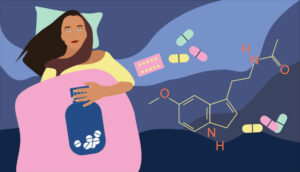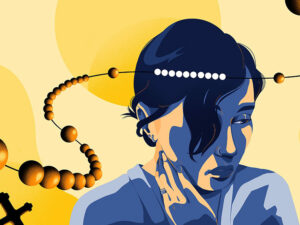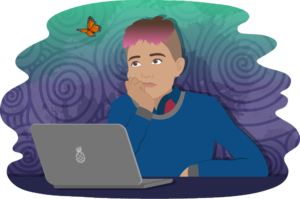Hypochondria and OCD are two conditions that are often misunderstood. Many people do not know the difference between the two, or what they entail. In this blog post, we will discuss hypochondria and OCD in-depth, and provide information on how to get help if you are struggling with either condition.
Contents
Hypochondria: Meaning And Symptoms 
Hypochondria is a mental disorder that causes someone to believe they are sick, even when there is no medical evidence to support this belief.
People with hypochondria are usually preoccupied with the fear of contracting a serious illness, and they may go to great lengths to avoid anything that could potentially make them sick.
The symptoms of hypochondria may include:
- Constantly checking for signs and symptoms of illness
- Seeking multiple opinions from different doctors
- Researching health information obsessively
- Experiencing anxiety or depression related to fears about one’s health
- Avoiding people or places for fear of contracting an illness
- Refusing to accept a diagnosis of “healthy”
- Fixating on a particular symptom or body part
OCD: Meaning And Symptoms 
People who have obsessive-compulsive disorder, or OCD, suffer from intrusive thoughts, emotions, and actions. Obsessions are unpleasant and intrusive thoughts, images, or urges that cause anxiety in people with OCD. Some common symptoms include:
- Obsessive thoughts or fears that something bad will happen
- Compulsive behaviors, such as hand-washing, checking things, or counting
- Avoidance of certain situations or objects that trigger anxiety
- Intrusive thoughts or images that cause distress
- Excessive worry about one’s health or the health of loved ones
- Difficulty concentrating or paying attention
What Are The Similarities?
There are quite a few similarities between Hypochondria and OCD.
Both disorders can be characterized by an individual’s preoccupation with their health or with the belief that they have a serious illness. For example, someone with hypochondria may be fixated on the idea that they have cancer, while someone with OCD may be convinced that they have a deadly disease.
Both disorders can also involve repetitive behaviors, such as checking for symptoms or seeking reassurance from others. For example, someone with hypochondria may repeatedly check their body for signs of cancer, while someone with OCD may excessively wash their hands or clean their house to prevent themselves from getting sick.
Hypochondria and OCD can also both interfere with an individual’s daily life, making it difficult to work or function in other areas. For example, someone with hypochondria may miss work due to their constant worry about their health, while someone with OCD may have difficulty leaving the house because of their fear of germs which may result in illness.
What Are The Differences?
There are a few key differences between hypochondria and OCD. For one, hypochondria is characterized by a fear of contracting a disease, while OCD is characterized by a fear of contamination.
Additionally, hypochondria is often focused on a specific body part or organ, while OCD can be focused on any number of things. Finally, hypochondria is often accompanied by anxiety, while OCD is often accompanied by depression.
Therefore, while there are some similarities between the two disorders, there are also several key differences.
What Are The Causes?
Hypochondria and OCD often share similar risk factors. Many risk elements can cause hypochondria and OCD. Some of these include:
Family History 
This means that if you have a parent or grandparent who suffers from hypochondria or OCD, you may be more likely to develop the disorder yourself.
There is also some evidence to suggest that hypochondria and OCD can be passed down through generations. This is known as “familial transmission” and it occurs when a disorder is more common in families than in the general population. It is thought that certain genes may be passed down from generation to generation, increasing the risk of developing hypochondria or OCD.
Trauma
Traumatic events can trigger fears and anxiety that lead to hypochondria and OCD. For example, a person who has experienced a traumatic event may become fixated on their health and start to believe that they are sick. This can lead to them obsessively checking their body for signs of illness and constantly worrying that they are sick.
In some cases, this can even lead to the development of OCD symptoms such as compulsively washing or cleaning in an attempt to avoid germs.
Let’s take an example. You get a car accident and ever since then you have been having anxiety attacks. This has led to you becoming a hypochondriac and now you have OCD about cleanliness. You wash your hands all the time, check your body for any sign of injury, and are always worried that something is wrong with you.
Anxiety
There are several ways that anxiety can cause hypochondria and OCD. One way is through what is known as “catastrophizing.” This is when a person magnifies the importance of a potential threat or danger and then fixates on it. This can lead to a person feeling that they are in constant danger and that any minor health issue could be a life-threatening event.
Another way anxiety can cause hypochondria and OCD is through ” rumination.” This is when a person obsessively thinks about a particular worry or fear over and over again. This can lead to a person feeling that they need to take excessive precautions to avoid any potential danger.
Depression
Depression can cause hypochondria and OCD in a few different ways. First, depression can lead to negative thinking, which can then cause a person to believe that they are ill even when they are not.
Second, depression can also cause a person to obsess over their health and become overly concerned about their bodily functions. Finally, depression can also cause a person to have difficulty concentrating and making decisions, which can make it difficult to manage one’s health. All of these factors can contribute to hypochondria and OCD.
What Are The Consequences?
Hypochondria and OCD can lead to several problems, including:
Difficulty working or going to school 
Hypochondria and OCD can result in difficulty working or going to school, indeed. There exist various reasons for this. One is that both disorders can lead to absenteeism, people with hypochondria or OCD may miss work or school due to their illness, real or imagined.
Additionally, both conditions can lead to lower productivity as hypochondria and OCD can interfere with concentration, focus, and motivation. In short, hypochondria and OCD can have a profound impact on a person’s ability to function in the world.
Problems with relationships
Hypochondria can lead to excessive worry and anxiety about one’s health, which can be draining for both partners. Secondly, hypochondria can also lead to avoidance behaviors, such as avoiding doctors or hospitals. This can make it difficult for partners to get the support they need when they are sick or injured.
Finally, hypochondria can also cause people to become fixated on certain health concerns, which can be frustrating for partners who want to discuss other topics. For example, someone with OCD may wash their hands excessively, which can make it difficult for partners to get close.
Avoiding situations that may trigger anxiety
Hypochondria and OCD give rise to anticipatory anxiety. When a person becomes anxious about a potential future event, it leads to Anticipatory anxiety. This can lead to avoidance behaviors such as not leaving the house or not going to work.
The second way is through avoidance of reminders, which is when a person tries to avoid anything that might remind them of their anxiety or their obsessive thoughts. This can lead to behaviors such as not watching TV, not reading the news, or not talking to certain people.
Feeling constantly worried or anxious
A person with hypochondria may fixate on a small mole on their skin, and convince themselves that it is cancerous. They may then spend hours researching cancer, looking up symptoms, and worrying that they are going to die. This can result in a great deal of anxiety and fear.
The second way hypochondria and OCD can result in anxiety is by constantly checking for symptoms of a disease or illness. For example, a person with hypochondria may check their temperature several times a day, or constantly check for lumps in their breast. This can also result in a great deal of anxiety, as the person is constantly worried that they will find something wrong.
Fixating on symptoms and health concerns
There are two main ways that hypochondria and OCD can result in fixating on symptoms and health concerns.
The first is by constantly monitoring oneself for any changes in symptoms or health concerns. This can lead to a person becoming extremely aware of even the slightest changes in their body, which can then result in them obsessing over whether or not these changes are indicative of a more serious health condition. The second way that hypochondria and OCD can result in fixating on symptoms and health concerns is by constantly seeking reassurance from others about their health.
Compulsively washing or cleaning
People with hypochondria or OCD may compulsively wash or clean as a way to reduce their anxiety about germs and contaminants. They may believe that if they can prevent themselves from coming into contact with germs, they will be safe from harm. This can lead to excessive hand-washing, showering, and cleaning of the home. In severe cases, people may avoid leaving their homes altogether.
Exercising excessively
Individuals with hypochondria or OCD may become fixated on the idea that they need to exercise to stay healthy or avoid becoming ill. They may also believe that if they don’t exercise regularly, they will start to look unhealthy or unattractive.
Finally, people with hypochondria or OCD may use exercise as a way to relieve anxiety or obsessive thoughts. In some cases, excessive exercise may be the only way that these individuals feel they can cope with their hypochondria or OCD. Some people may exercise so excessively that it begins to interfere with their daily life and causes them significant distress.
What Solutions Are Available? 
If you’re struggling with hypochondria or OCD, it’s important to know that you’re not alone. Many professionals can help you manage your symptoms and live a healthy, happy life. There are several different treatment options available for people with hypochondria or OCD.
- Cognitive behavioral therapy (CBT) is one of the most effective treatments for these conditions. This psychotherapy can help you learn to manage your thoughts and behaviors more positively.
- Exposure and response prevention (ERP) helps you face your fears and learn to control your anxiety.
- In some cases, your therapist may recommend you Electroconvulsive therapy (ECT). ECT is a medical procedure that involves passing electrical currents through the brain. It’s typically used as a last resort for people with severe mental illness who haven’t responded to other treatments.
- The other suitable professional treatments are Counseling, Group therapy, and Family therapy which are also equally effective for managing and overcoming Hypochondria and OCD.
- Medication: Medication can also be an effective treatment for hypochondria and OCD. Antidepressants, anti-anxiety medications, and antipsychotic medications are often used to treat these conditions. It’s important to work with a mental health professional to find the right medication and dosage for you.
- Self-help strategies: One of the most important things you can do is to educate yourself about your condition. This can help you to understand your symptoms and why they occur. You may introduce some positive changes such as fixing your day schedule, giving time to what you love in truth, spending time with your loved ones, staying involved in your community, and many more. These small steps will create a big positive change in your life gradually.
Conclusion
As we can see, hypochondria and OCD are two very different disorders. However, they can both be extremely debilitating and cause a great deal of distress. If you think you may be suffering from either of these conditions, it is important to seek professional help. You can manage and overcome both conditions effectively with the help of the right treatment.
Professional Guidance is the first step to moving toward your healing journey. You can try reaching Therapy Mantra to seek expert help in the comfort of your own home. Our therapists will help you get a solution to manage and overcome your problem. You can book your online therapy and talk directly to your assigned mentor. You may also download our free OCD treatment app on Android or iOS.









